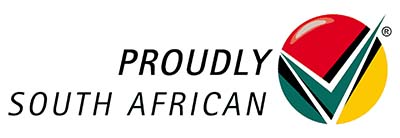For businesses managing a large number of assets, Fixed Asset Management Software offers more than just organization—it provides significant cost-saving opportunities.
By streamlining operations and delivering real-time insights, this software empowers companies to reduce unnecessary expenses, prevent financial losses, and maximize the value of their assets.
Here are five key ways Fixed Asset Management Software can help save your business money.
1. Automating Asset Tracking
Manual asset tracking can be both time-intensive and error-prone, leading to misplaced or misclassified assets.
This inefficiency can result in financial losses from theft, incorrect depreciation, or redundant purchases.
Fixed Asset Management Software automates tracking, providing a clear view of asset locations, usage, and maintenance schedules.
Real-time tracking ensures every asset is accounted for, reducing labor costs from manual data entry and minimizing the risk of lost or unaccounted-for assets.
This leads to improved operational efficiency and a lower chance of costly mistakes.
2. Extending Asset Lifespan through Maintenance
One of the biggest advantages of Fixed Asset Management Software is its ability to schedule and track maintenance. Regular maintenance is crucial for keeping assets in optimal condition and extending their useful life.
Without it, assets may suffer from wear and tear, leading to costly repairs or early replacements.
With Fixed Asset Management Software, businesses can automate maintenance schedules, receive alerts when an asset is due for servicing, and track the condition of each asset over time.
By staying on top of maintenance, businesses can avoid sudden breakdowns and extend the lifespan of their equipment, saving money on repairs and replacements.
3. Reducing Depreciation Errors
Depreciation is a key factor in financial reporting, and errors in depreciation calculations can lead to significant financial discrepancies.
Over-depreciation may result in a business understating its asset value, while under-depreciation can lead to inflated profits on paper, which may result in tax penalties.
Fixed asset management software ensures accurate depreciation calculations by automating the process. The software applies the appropriate depreciation method based on asset type and usage, ensuring compliance with accounting standards.
By reducing depreciation errors, businesses can produce more accurate financial reports, avoid overpaying taxes, and save money by properly managing the value of their assets.
4. Avoiding Redundant Purchases
It’s not uncommon for businesses to unknowingly purchase assets they already own due to poor tracking and inventory management.
This is particularly true for businesses with large inventories or multiple locations. Redundant purchases not only waste money but also lead to unnecessary storage and maintenance costs.
Fixed asset management software eliminates this problem by providing a clear, up-to-date view of all assets owned by the business.
With detailed asset information at their fingertips, businesses can make informed purchasing decisions, ensuring they don’t buy items they already have.
This leads to more efficient resource allocation and significant cost savings over time.
5. Enhancing Compliance and Audit Efficiency
Compliance with asset-related regulations, such as tax and financial reporting requirements, is critical for avoiding costly penalties.
Fixed asset management software helps businesses stay compliant by maintaining accurate records of asset transactions, depreciation, and maintenance activities.
The software generates detailed audit trails, documenting every action taken with an asset, from acquisition to disposal.
During audits, businesses can easily provide auditors with the necessary documentation, reducing the time and effort spent on the audit process.
This streamlined approach to audits not only reduces labor costs but also minimizes the risk of fines or penalties due to non-compliance.








